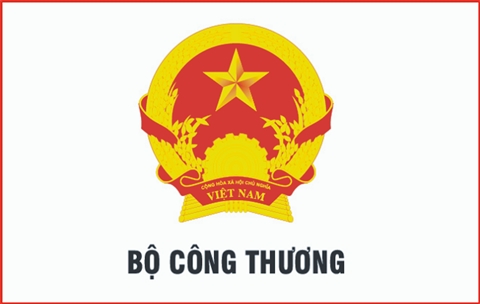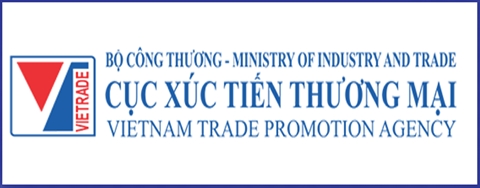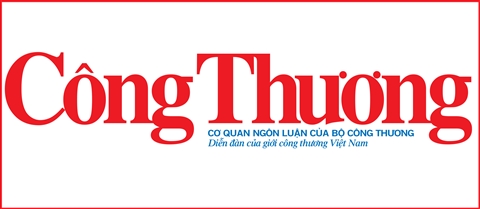After 6 years of opening, Vietnamese retail market began to feel the "landing" of foreign companies as warned.
In the context of increased competition and economic crisis, many Vietnamese retailers have been forced to strengthen the apparatus and renew the methods of operation.
However, many Vietnamese retailers assumed that the investment decentralization policies in attracting foreign investment (FDI) and poor sector planning caused the domestic retail enterprises become weaker than foreign competitors.

The fierce race
According to Mr. Tran Nguyen , deputy director of Domestic Market Department (Ministry of Industry and Trade), there are about 20 large retail corporations on an international scale in .
The domestic retail system is moving from traditional distribution into modern channel. In addition, there are thousands of specialty shops and convenience stores (based on modern models of developed countries) distributed throughout the country.
Besides the introduction of many new modern retail outlets, some outlets were built from the previous year and now has been renovated and expanded the business premises, upgraded and modernized the equipment… which has changed the face of retail trade of the country, the consumption habits of Vietnamese consumers in the direction of modern civilization and contributed significantly to the economic and society development of the whole country.
According to statistics, the number of customers to the foreign invested center is very high due to these wholesalers and retailers are more professional, and display a large number of goods. Meanwhile, the domestic retailers are weak due to poor investment, governance capacity. However, the largest retail Groups has no advantage to capture consumer sentiment. The race for market share is still ongoing fierce between domestic and foreign enterprises.
Therefore, how Vietnamese retailers do to grow strong, while the domestic retail enterprises is currently facing many difficulties in capital, high interest rates, especially the fierce competition of several large foreign retailers. Mr. Pham Dinh Doan, Chairman of the Board of Directors, General Director of Phu Thai JSC said that: "The domestic enterprises have a lot of difficulties in different provinces, accessing to land and premises are very difficult. In addition, many provinces have "sympathy" with the foreign companies and facilitate more foreign businesses."
According to Mr. Nguyen Van Hoa, Chairman of Board of Directors of Saigon CoopMart, the recent policies and mechanisms, many enterprises have to "swim" by themselves and short of breath in swimming, because the domestic retail enterprises has not been concerned. This can be seen from the big premise auctions, all beautiful premises belong to foreign companies. Meanwhile, the majority of enterprises are small and medium-sized, limited capital, weak competitiveness and the infrastructure is even more difficult. Especially, the financial and human resources are two major problems that the domestic retailers have to face. Therefore, in order to facilitate the domestic enterprises today, the policies of Ministry of Industry and Trade should support primarily the planned finance, human resource training to improve the level of management knowledge and vision.
The representatives of Hanoi Trade Corporation (Hapro) said that there should be consistency between the central and local levels to support the domestic enterprises with development premises. At the same time, the government should consider the policies for enterpriese which are proactive in opening the retail market at the provinces in remote areas. Therefore, the domestic enterprises need sustainable cooperation, shaking hands with each other to change the business policy of the foreign enterprises, gain a location in the retail system, promote the domestic production and maintain the domestic market.
Changing method of business
Under the WTO commitments, from January 11th, 2012 until January 11th, 2015, allows to set up a joint venture to provide services related to production in which the foreign investors are able to own up to 50% of the charter capital of the joint venture.
After January 11th, 2015, to set up a 100% foreign owned capital enterprise. Thus, the opening schedule for the foreign producers, distributors into according to WTO commitment will be completed in just over a year. This raises challenges as well as fierce competition for Vietnamese retailers.
In the view of a person who worked in supermarket sector for many years, Mr. Vu Vinh Phu, Chairman of the Association said that this is challenge time and supermarket now just want a breakeven if unfortunately. He pointed out the difficulties in this industry such as difficulty in payback in a short term but the most difficult at this moment is capital resource. When the purchasing power is less, the enterprises must keep firmly the viable persistence in the industry, if not they will have to withdraw from the investment location or move to other purposes.
"In addition, the brand establishment in the market will become more and more difficult when having more competitors. Constructing a supermarket takes only 6 months but keeping a good stores must take 10 years," Mr. Phu said.
However, Mr. Phu said that if a enterprise operates seriously they still have opportunites to develop, but they need a proper investment and business strategy. The investors, at this time, should not open widely but with planning, though business plan and must investigate, research the market, goods resource as well as seriously train the human resource before deciding to enter the market.
To evaluate how effectively the mall operate, according to Mr. Tran Nguyen , it can not be measured by the number of tourists. In fact, a trade center gains a breakeven in the first period, but with potential bosses, the mall will bring big profits in the next years. Therefore, a prerequisite for Vietnamese retail enterprises can succeed is to have large premises.
However, in big cities such as , finding a large space is a challenge. Next is to maintain stable goods resource, especially in the high season, there are clear origin, quality guarantee and reasonable prices are plus points of each supermarket. Finally, information technology to manage sales, inventory, revenue and expenditure and human resource.
The implementation of a comprehensive technology system applied for managing the supermarket does not increase business efficiency, saving the management cost but also helping the enterprises to prevent losses, reduce the risks arising in operation period.
Ms. Dinh Thi My Loan, Chairman of Retail Association said that the in order to adapt to the current conditions, the retail enterprises must seek to rise more strongly. This is also an appropriate time for the retail enterprises to have potential self-assessment, reform the shortcomings, apply the positive methods.
In order to promote the strengths and limit the weaknesses of the domestic retail enterprises, the representatives of Ministry of Industry and Trade said that in the next time there will be incentives for the domestic distribution and retail companies to cooperate with the world’s leading retailers to establish retail outlets in Vietnam and then gain experiences, acquire management skills and advanced technology. In which, the precedent condition is that Vietnamese enteprises hold 51% of the charter capital.
Ministry of Industry and Trade has approved a development plan for the supermarket and trade center network. Accordingly, in 2020, the whole country will have about 1200-1300 supermarkets and 180 commercial centers. Besides, the government encouraged enterprises of all economic sectors to participate in. It is forecasted that until 2020, the proportion of retail through the network of supermarkets, commercial centers will account for 45% of total social commodities retail. However, in order to develop sustainably and become a reliable address of the consumer, the supermarkets network should have much more attempts.
On the other hand, the Vietnamese retail enterprises have drastically changed on business practices, improved the quality of customer service to ensure the competitiveness in the market. Especially, the supermarkets need to respond quickly to the requirements of the dynamic and changeable retail market because the current retail formats will not fit in the future. Hence, the supermarkets need to overcome the "chronic disease" of the Vietnamese retail and distribution market./.
According to

































